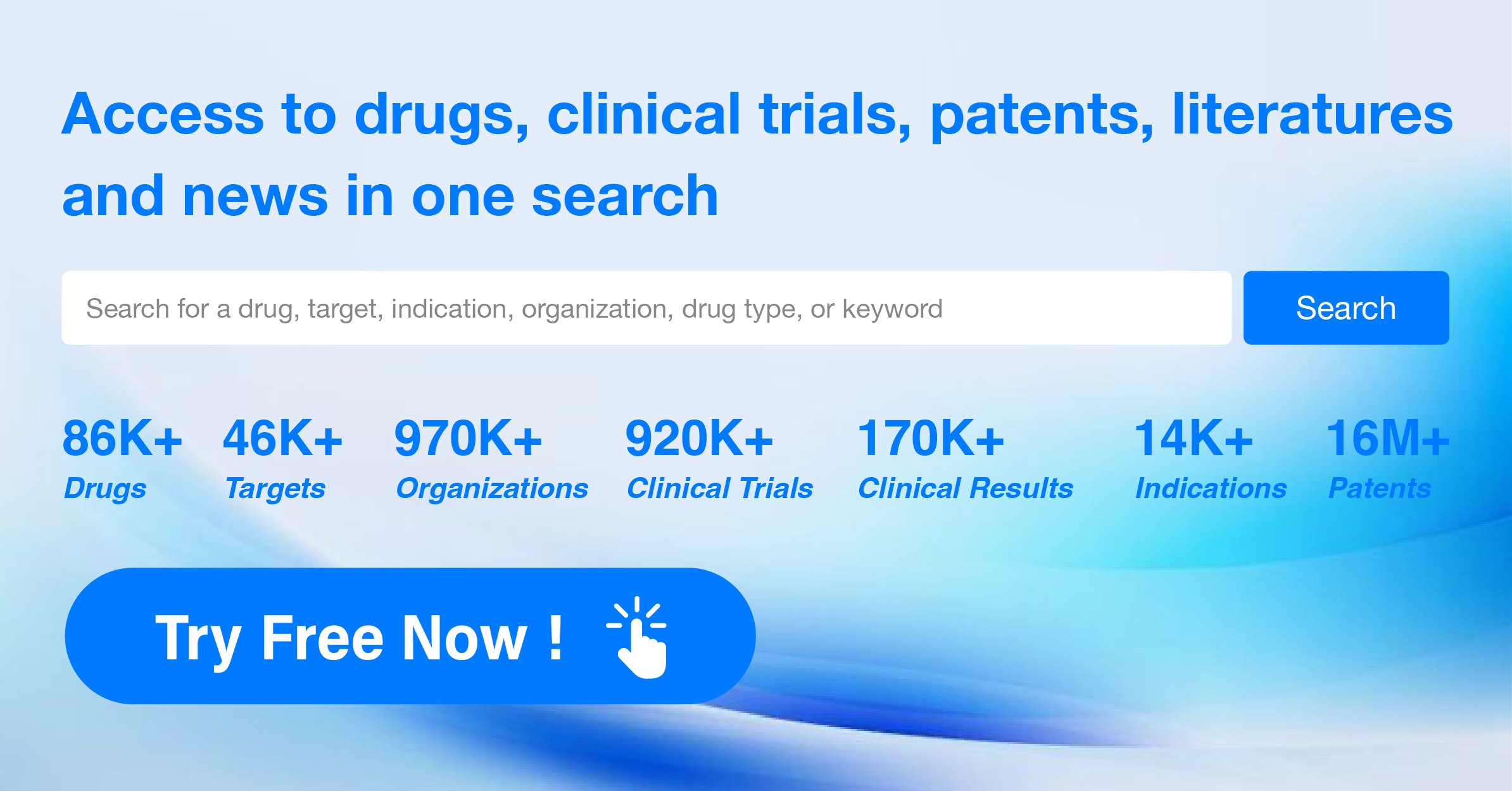Pharma Frontiers: Daily Digest of Global Pharmaceutical News - May 11
1.Freeline Therapeutics Announces Positive Latest Clinical Results for its Potential "First-in-Class" Gene Therapy
On May 10th, Freeline Therapeutics released the latest clinical data from its ongoing Phase 1/2 GALILEO-1 trial. The analysis demonstrated significant reductions in lyso-glucosylceramide (lyso-Gb1) levels in type 1 Gaucher disease patients who have been long-term users of existing therapies. Lyso-Gb1 is one of the best predictive biomarkers for clinical response. Preliminary signs of improvement in bone marrow burden and fatigue were also observed in patients. The detailed data was presented at the 27th Annual Meeting of the American Society of Gene & Cell Therapy (ASGCT).
Gaucher disease is caused by mutations in the GBA1 gene, which lead to abnormally low levels of glucocerebrosidase (GCase), an enzyme crucial for the metabolism of a certain lipid. These mutations result in the harmful accumulation of glucocerebroside (Gb-1) and lyso-Gb1 within cells, which then builds up in various organs, causing inflammation and functional impairment. The GALILEO-1 is an international multicenter exploratory dose-finding study targeting adult patients with type 1 Gaucher disease.
FLT201 is a potential "first-in-class" and "best-in-class" investigational adeno-associated virus (AAV) gene therapy designed for the treatment of adult patients with type 1 Gaucher disease. This therapy aims to provide a one-time treatment that consistently boosts GCase expression in patients and reduces the accumulation of harmful substrates, preventing disease progression and obviating the need for lifelong treatment. FLT201 utilizes Freeline’s AAVS3 capsid to introduce a novel gene into liver cells to produce a rationally designed variant of GCase. In preclinical studies, this GCase variant showed a half-life increase of more than 20-fold under lysosomal pH conditions compared to the wild-type human GCase.
2.Qyuns Therapeutics Announces Clinical Approval for its Self-Developed Monoclonal Antibody QX013N Targeting c-kit
On May 10th, Qyuns Therapeutics announced that its self-developed humanized IgG1 monoclonal antibody QX013N, targeting the c-kit receptor, has received clinical approval in China. The company plans to develop this treatment for Chronic Spontaneous Urticaria (CSU). Chronic Spontaneous Urticaria is a common chronic inflammatory skin disease characterized by spontaneous appearance of wheals or angioedema that persists for more than six weeks. The disease commonly recurs and is usually accompanied by persistent itching or burning sensations, severely impacting the patients’ quality of life and psychophysical health.
In terms of treatment, antihistamines are currently the most commonly used therapeutic option in clinical settings to control symptoms to a certain extent. However, a significant portion of patients do not respond well to the standard dose of antihistamines, and about one-third of these patients continue to experience uncontrolled symptoms even after dosage increases. The emergence of innovative biopharmaceuticals offers new options and approaches for the treatment of chronic spontaneous urticaria. Urticaria is considered a disease primarily caused by mast cell degranulation, with c-kit being a principal regulatory factor of mast cells, which are key effector cells in CSU.
According to a press release from Qyuns Therapeutics, QX013N aims to downregulate downstream signaling and inhibit the progression of CSU. By specifically binding to c-kit, the product inhibits the differentiation, maturation, survival, proliferation, and degranulation of mast cells, thereby aiming to reduce and deplete mast cells for the treatment of mast cell-driven diseases such as CSU.
As introduced earlier in the prospectus of Qyuns Therapeutics, inflammatory skin diseases like urticaria can severely impact patients' lives. Recent research has increasingly focused on the specific roles of pro-inflammatory cytokines in causing skin inflammation and the development of cytokine-directed therapies, including strategies targeting cytokine signaling pathways.
3.Ring Therapeutics Releases Latest Results for Next-Generation Gene Therapy Vector Anellovector
On May 10th, Ring Therapeutics presented the latest preclinical data for its next-generation gene therapy vector, Anellovector, at the annual meeting of the American Society of Gene & Cell Therapy (ASGCT). The data demonstrated that Anellovector successfully achieved gene delivery in non-human primates (NHPs) and can be safely administered repeatedly. Furthermore, the payload capacity of this vector exceeds the DNA size of the native Anellovirus (ANV). These results further underscore the potential of Anellovector as a next-generation gene therapy vector.
The report indicated that preclinical studies have shown Anellovector can package transgenes up to 5.0 kb, which is a 65% increase over the DNA of wild-type ANV. This also surpasses the payload limit of Adeno-associated virus (AAV) vectors, which have a capacity of approximately 4.7 kb. The expanded payload capacity enhances the applicability of Anellovector, potentially benefiting more patients who need gene therapy.
In addition, Anellovector administered via intravitreal injection in NHPs demonstrated robust gene transduction and expression in ocular tissues. Eyes that received repeated dosing showed significantly increased levels of gene transduction and expression in the neural retina compared to eyes that received a single treatment, indicating the potential for repeated dosing of Anellovector without signs of ocular toxicity.
The press release noted that these results represent the first successful demonstration of therapeutic payload delivery using Anellovector, laying the groundwork for further exploration of this platform’s potential in treating ophthalmic diseases such as wet age-related macular degeneration (AMD).
Anellovector is based on anelloviruses, a group of non-enveloped, negative single-strand, circular DNA viruses that coexist symbiotically with humans and can infect various vertebrates, including humans.
4.Chia Tai Tianqing's Class 1 Innovative Drug Benmelstobart Approved for Marketing
On May 9, the National Medical Products Administration (NMPA) approved the first indication for the Class 1 innovative drug Benmelstobart injection. This product is developed by Chia Tai Tianqing, a subsidiary of China Biopharmaceuticals. The approved indication is for use in combination with Anlotinib Dihydrochloride capsules, Carboplatin, and Etoposide as a first-line treatment for patients with extensive-stage small cell lung cancer (ES-SCLC). This also marks the sixth approved indication for Anlotinib Dihydrochloride capsules in China. Phase III clinical trials have shown that, based on data currently published, this combined treatment regimen has set new global records for median progression-free survival (mPFS) and overall survival (mOS) in the treatment of extensive-stage small cell lung cancer. Benmelstobart monoclonal antibody is a humanized PD-L1 monoclonal antibody independently developed by Chia Tai Tianqing. It inhibits the binding of PD-L1 to PD-1 and B7.1 receptors on T-cell surfaces, thereby restoring T-cell activity and enhancing immune response. Preliminary exploratory clinical data have proven the synergistic effect of combining Benmelstobart with Anlotinib in multiple tumor types, including non-small cell lung cancer, soft tissue sarcoma, renal cell carcinoma, endometrial cancer, ovarian cancer, hepatocellular carcinoma, and cholangiocarcinoma. Besides advanced small cell lung cancer, the combined use of Benmelstobart and Anlotinib for the treatment of recurrent or metastatic endometrial cancer was submitted for marketing approval in February of this year and has been included in the CDE's priority review process. In April 2022, this therapy was designated as a breakthrough therapy by the CDE. In recent years, Chia Tai Tianqing has continued to increase its investments in the oncology field. Apart from Benmelstobart, the company's other innovative drug, Unecritinib (Unecritinib Capsules), was recently approved for marketing as the first domestically produced targeted drug for ROS1 positive non-small cell lung cancer. Another next-generation ALK inhibitor, Envonalkib, is expected to be approved within this year.
5.Keytruda in combination with chemotherapy as adjuvant treatment for high-risk stage III endometrial cancer does not meet primary endpoint in study
On May 9th, Merck announced that the Phase III KEYNOTE-B21 trial of the PD-1 inhibitor Keytruda, combined with chemotherapy (with or without radiotherapy), as an adjuvant treatment for patients with newly-diagnosed, surgically-treated high-risk endometrial cancer failed to meet its primary endpoint of disease-free survival (DFS). According to a pre-specified interim analysis conducted by an independent Data Monitoring Committee, Keytruda combined with adjuvant chemotherapy ± radiotherapy did not meet the pre-specified statistical standard for DFS when compared to placebo combined with adjuvant chemotherapy ± radiotherapy. Given the lack of improvement in DFS, another primary endpoint of overall survival (OS) was not formally assessed. The safety profile of Keytruda was consistent with previous study findings, with no new safety signals identified. A thorough evaluation of the study data is ongoing.
In the United States, Keytruda has received approval for two indications in the treatment of endometrial cancer. Based on the results of the KEYNOTE-775 study, Keytruda in combination with Lenvima was approved for patients with advanced endometrial carcinoma that is not microsatellite instability-high (MSI-H) or mismatch repair deficient (dMMR), who have disease progression following prior systemic therapy and are not candidates for surgery or radiation. Additionally, based on the KEYNOTE-158 study, Keytruda received FDA approval as a monotherapy for treating patients with MSI-H or dMMR advanced endometrial cancer that has progressed following prior systemic therapy and who are not suitable for surgical treatment or radiotherapy.
Merck has an extensive clinical development program for Keytruda in the treatment of endometrial cancer, including the NRG-GY018/KEYNOTE-868 trial, which evaluates Keytruda in combination with standard chemotherapy (carboplatin and paclitaxel), followed by Keytruda as a single-agent therapy for patients with primarily advanced or recurrent endometrial carcinoma.
6.Tianze Yuntai Announces Positive Phase 1/2 Clinical Results for Gene Therapy VGR-R01
On May 9th, Tianze Yuntai announced that it presented the latest phase 1/2 clinical data for VGR-R01, a gene therapy for the treatment of Bietti's Crystalline Dystrophy (BCD), at this year's American Society of Gene & Cell Therapy (ASGCT) Annual Meeting in an oral presentation. VGR-R01 is a subretinally injected gene therapy product that functions as a gene replacement therapy. This genetic treatment requires only a single injection to potentially yield long-term therapeutic effects.
Bietti's Crystalline Dystrophy is an autosomal recessive progressive retinal degenerative disease. Most patients with BCD begin to exhibit symptoms including night blindness and visual acuity decline between the ages of 20 and 40, progressing to legal blindness by the age of 50 to 60. Currently, there are no effective clinical treatments for BCD. The disease-causing gene for BCD is CYP4V2, located at 4q35, which encodes a protein involved in lipid metabolism. This protein is highly expressed in the retinal pigment epithelium (RPE) and possesses fatty acid hydroxylase activity.
VGR-R01 is a subretinally injected gene therapy product intended for the treatment of patients with BCD caused by mutations in the CYP4V2 gene. Its mechanism involves gene replacement therapy, where the therapy is administered through a subretinal injection. The mediation of AAV capsid proteins transduces the RPE cells, delivering the gene expression cassette to the nucleus. The VGR-R01 expression cassette exists as freely circulating DNA within RPE cells, expressing the CYP4V2 protein to restore the cells' fatty acid hydroxylase activity.
According to the press release from Tianze Yuntai, VGR-R01 aims to correct the fatty acid metabolism disorder in the patient's retina, potentially preventing or ameliorating damage to the structure and function of the RPE cells, photoreceptors, and choroid. The therapeutic effects anticipate the correction of visual impairment, preservation of remaining visual function, and delay of visual deterioration.
7.Shionogi Secures Global Rights with $150 Million Upfront Payment for a Novel Small Molecule Drug
On May 10th, Shionogi announced an exclusive licensing agreement with Maze Therapeutics. Shionogi has acquired the global exclusive rights to develop MZE001 and will pay a $150 million upfront payment. Maze is eligible for milestone payments based on development, regulatory, and commercial achievements. MZE001 is an investigational oral therapy for Pompe disease, which has shown promising results in Phase 1 clinical trials. According to Shionogi's press release, MZE001 has the potential to become the first oral medication for the treatment of Pompe disease.
Pompe disease is an inherited lysosomal storage disorder caused by a deficiency of acid alpha-glucosidase (GAA). The reduction or absence of GAA leads to the accumulation of glycogen in the lysosomes of muscles and other tissues, and is also known as Type II glycogen storage disease. This disease is a rare and often fatal disorder that causes progressive muscle weakness affecting skeletal and cardiac muscles. In patients with severe deficiency or near-total absence of GAA, symptoms usually appear within the first months of life, and most infants succumb to cardiac or respiratory complications before their first birthday. Enzyme replacement therapy (ERT) is currently the standard treatment for Pompe disease, yet there remains an unmet clinical need.
MZE001 is a small molecule inhibitor specific for glycogen synthase 1 (GYS1), working by decreasing glycogen concentrations in the muscle tissues. According to Shionogi's press release, MZE001 has potential to be utilized as both a monotherapy and as an adjunctive treatment to ERT, enhancing therapy for patients with Pompe disease. In 2022, the U.S. FDA granted orphan drug designation to MZE001.
8.Novo Nordisk Invests $600 Million in Next-Generation Weight Loss Therapies
On May 10th, Metaphore Biotechnologies, in partnership with Flagship Pioneering, announced a research collaboration with Novo Nordisk worth up to $600 million to develop next-generation weight loss therapies. Metaphore, a biotechnology company founded in 2021 by Flagship, combines machine learning with molecular simulation to design novel therapies, focusing particularly on drug targets previously considered challenging. The company’s MIMIC platform is a computational-driven biological platform aimed at designing new therapeutic strategies, optimizing drugs in terms of function, specificity, and selectivity. The MIMIC platform focuses on the development of therapies designed around pharmacophores, which are key sets of features critical for the interaction between a drug and its target. It aims to systematically isolate pharmacophores with single amino acid resolution, design molecular analogs, and optimize the therapeutic attributes of molecules, including functionality, specificity, selectivity, and multitargeting. This collaboration will utilize Metaphore’s MIMIC platform to design multitarget therapies, targeting the GLP-1 receptor and related biological mechanisms to develop scalable, long-acting formulations that reduce dosing frequency. This partnership builds on a broad strategic relationship between Novo Nordisk and Flagship Pioneering, intended to jointly develop new treatments for cardiovascular metabolic diseases and rare diseases. Flagship’s Pioneering Medicines and Novo Nordisk’s Bio Innovation Hub, will jointly lead this collaboration to develop up to two next-generation weight loss treatments.




